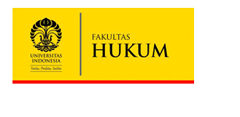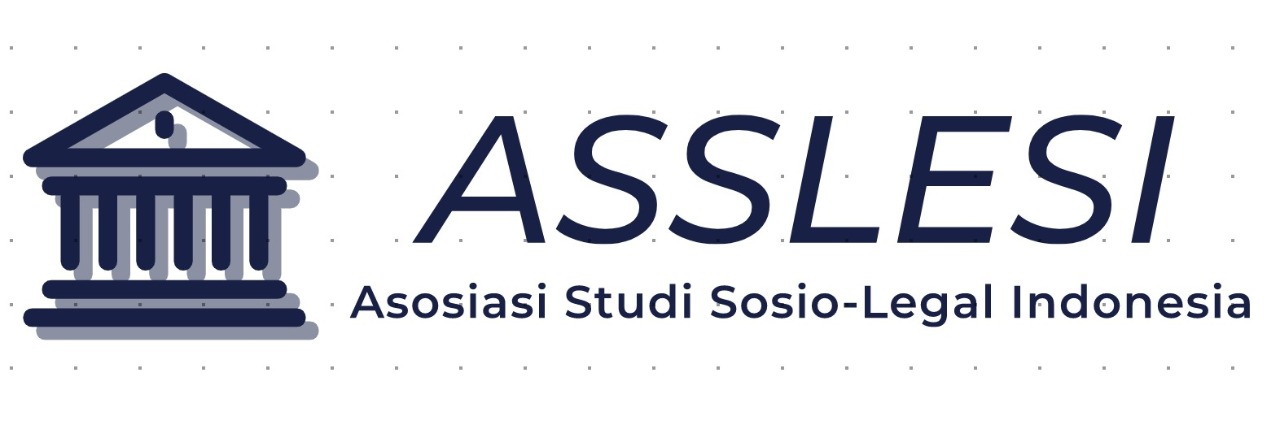Abstract
The word "adat" has several different meanings in Indonesia. Adat can be used to describe informal dispute settlement procedures, a habit that keeps repeating itself, or a norm that develops into a code of behavior. Adat is perceived in this article as a narrative and a strategy employed by oppressed groups to fight against various forms of exclusion, particularly in relation to land grabbing for resource extraction and conservation carried out by the state and private sectors. This article will analyze the evolution and distinctions of Adat-based studies and movements in Indonesia during the colonial and national periods. Using existing secondary material from various studies on indigenous studies and movements, this article shows the differences in agendas, strategies and actors that use adat in legal discourse and legal mobilization over time. The connection between local, national, and international contexts will also be covered in this study, along with how rural communities dealing with agrarian issues have turned to adat as a strategy for legal mobilization.
Bahasa Abstract
Kata "adat" memiliki beberapa arti yang berbeda di Indonesia. Adat dapat digunakan untuk menggambarkan prosedur penyelesaian sengketa informal, kebiasaan yang terus berulang, atau norma yang berkembang menjadi pedoman berperilaku. Adat dimaknai dalam artikel ini sebagai narasi dan strategi yang digunakan oleh kelompok-kelompok tertindas untuk melawan berbagai bentuk pengucilan, terutama dalam kaitannya dengan perampasan tanah untuk ekstraksi dan konservasi sumber daya yang dilakukan oleh aktor publik dan swasta. Artikel ini akan menganalisis evolusi dan perbedaan studi dan gerakan berbasis Adat di Indonesia dari masa kolonial ke nasional. Dengan menggunakan bahan sekunder yang ada dari berbagai penelitian tentang studi dan gerakan adat, artikel ini menunjukkan perbedaan agenda, strategi dan aktor yang menggunakan adat dalam diskursus dan mobilisasi hukum dari masa ke masa. Hubungan antara konteks lokal, nasional, dan internasional juga akan dibahas dalam artikel ini, bersama dengan bagaimana masyarakat pedesaan yang berurusan dengan masalah agraria telah beralih ke adat sebagai strategi untuk mobilisasi hukum.
References
Afiff, S. And Lowe, C. 2007. "Claiming Indigenous Community: Political Discourse and Natural Resource Rights in Indonesia." Alternatives 32: 73-97.
Anaya, J. 2004. Indigenous Peoples in International Law. New York: Oxford University Press.
Arizona, Y. And Erasmus, C. 2013. "The Revival of Indigenous Peoples: Contestations over a Special Legislation on Masyarakat Adat." In Adat and Indigeneity in Indonesia. Culture and Entitlements between Heteronomy and Self-Ascription, Göttingen Studies in Cultural Property, by Brigitta Hauser-Schäublin. Göttingen: Göttingen University Press.
Arizona, Yance. 2022. "Indigeneity in the Indonesian Constitution." In Constitutional Democracy in Indonesia, by Melissa Crouch. Oxford University Press.
Arizona, Yance. 2011. "'Mempertanyakan kebangkitan adat’, resensi buku ‘Adat dalam Politik di Indonesia'." Edited by Jamie, David Henley dan Sandra Moniaga Davidson. Jurnal Jentera 21: 96-102.
Arizona, Yance. 2022. Rethinking adat strategies: the politics of state recognition of customary land rights in Indonesia. PhD thesis at the Van Vollenhoven Institute, Leiden: Van Vollenhoven Institute, Leiden Law School.
Bedner, A. and Arizona, Y. 2019. "Adat in Indonesian Land Law: A Promise for the Future or a Dead End?" The Asia Pacific Journal of Anthropology 20 (5): 416-434.
Bedner, Adriaan dan Ward Berenschot. 2023. "Legal mobilization and civil society: On the use and usefulness of strategic litigation in Southeast Asia." In Routledge Handbook of Civil and Uncivil Society in Southeast Asia, by Eva Hansson and Meredith L Weiss. Routledge.
Benda-Beckmann, K.v. 2019. "Anachronism, Agency, and the Contextualisation of Adat: Van Vollenhoven’s Analyses in Light of Struggles Over Resources." The Asia Pacific Journal of Anthropology 20 (5): 397-415.
Davidson, J. S. and Henley, D. 2007. The Revival of Tradition in Indonesian Politics: The Deployment of Adat from Colonialism to Indigenism. London and New York: Routledge.
Davidson, J.S. and Henley, D. 2007. "Introduction: radical conservatism – the protean politics of adat." In The Revival of Tradition in Indonesian Politics: The deployment of adat from colonialism to indigenism, by Jamie S. Davidson and David Henley. London and New York: Routledge.
Fay, C. and Denduangrudee., H.S. 2016. "Emerging options for the recognition and protection of indigenous community rights in Indonesia." In Land and development in Indonesia: Searching for the people’s sovereignty, by John F. McCarthy and Kathryn Robinson. Singapore: ISEAS.
Hall, D., Hirsch, P. and Li, T.M. 2011. Powers of Exclusion: Land Dilemmas in Southeast Asia. Singapore and Manoa: NUS Press and University of Hawaii Press.
Klinken, G.v. 2007. Communal violence democratization in Indonesia : small town wars. New York: Routledge.
Li, Tania Murray. 2000. "Articulating Indigenous Identity in Indonesia: Resource Politics and the Tribal Slot." Society for Comparative Study of Society and History 42 (1): 149-179.
Li, Tania Murray. 2001. "Masyarakat Adat, Difference, and the Limits of Recognition in Indonesia's Forest Zone." Modern Asian Studies 35 (3): 645-676.
Moniaga, S. 2007. "From Bumiputera to masyarakat adat: a long and confusing journey." In The Revival of Tradition in Indonesian Politics: The deployment of adat from colonialism to indigenism, by Jamie S. and David Henley Davidson. London and New York: Routledge.
Niezen, R. 2003. The Origins of Indigenism: Human rights and the politics of identity. Berkeley, CA: University of California Press.
Nugroho, Wahyu dan Erwin Syahruddin. 2021. "Politik Hukum Rancangan Undang-Undang Cipta Kerja di Sektor Lingkungan Hidup dan Kehutanan (Suatu telaah kritis)." Jurnal Hukum & Pembangunan 51 (3).
Peluso, N.L. 1992. Rich Forests, Poor People: Forest access control and resistance in Java. Berkeley/Los Angeles/Oxford: University of California Press.
Rachman, N. F. and Masalam, H. 2017. "The Trajectory of Indigeneity Politics Against Land Dispossession in Indonesia." Sriwijaya Law Review 1 (a): 122-142.
Rachman, N.F. and Siscawati, M. 2016. "Forestry law, masyarakat adat and struggles for inclusive citizenship in Indonesia." In Routledge Handbook in Asian Law, by Christopher Antons. London and New York: Routledge.
Safitri, M.A. 2015. "Dividing the land: Legal gaps in recognition of customary land in Indonesian forest areas." Kasarinlan: Philippine Journal of World Studies 30 (2) - 31 (1): 31-48.
Safitri, Myrna dan Luluk Uliyah. 2015. Adat di tangan Pemerintah Daerah: Panduan penyusunan produk hukum daerah untuk pengakuan dan perlindungan hak Masyarakat Hukum Adat. Jakarta: Epistema Institute.
Thufail, F.I. 2013. "Becoming Aristocrats: Keraton in the Politics of Adat." In Adat and Indigeneity in Indonesia Culture and Entitlements between Heteronomy and Self-Ascription, Göttingen Studies in Cultural Property Vol. 7, by Brigitta Hauser-Schäublin. Göttingen.
Tsing, A. L. 2009. "Adat/Indigenous: Indigeneity in motion." In World in Motion: Toward a Global Lexicon, by Carol and Anna Lowenthaupt Tsing Gluck. Durham and London: Duke University Press.
Tsing, Anna L. 2007. "Indigenous Voice." In Indigenous Experience Today, by Marisol de La and Orin Starn Cadena. London: Routledge.
van Vollenhoven, Cornelis. 2020. Orang Indonesia dan Tanahnya (De Indonesier en Zijn Ground). Yogyakarta: Insist Press.
Wignjosoebroto, Soetandyo. 2014. Dari Hukum Kolonial ke Hukum Nasional. Jakarta HuMa, Van Volenhoven Institute, KITLV- Jakarta, dan Epistema Institute.
Zakaria, Yando. 2000. Abih Tandeh: Masyarakat desa di bawah rezim Orde Baru. Jakarta: ELSAM.
Recommended Citation
Arizona, Yance
(2023)
"Adat as Strategy for Legal Struggle and Legal Mobilization (Adat Sebagai Strategi Perjuangan dan Mobilisasi Hukum),"
The Indonesian Journal of Socio-Legal Studies: Vol. 2:
No.
2, Article 3.
DOI: 10.54828/ijsls.2023v2n2.3
Available at:
https://scholarhub.ui.ac.id/ijsls/vol2/iss2/3
Included in
Civil Rights and Discrimination Commons, Human Rights Law Commons, Indigenous, Indian, and Aboriginal Law Commons, Land Use Law Commons, Law and Politics Commons, Law and Society Commons, Litigation Commons, Natural Resources Law Commons, Nonprofit Organizations Law Commons



